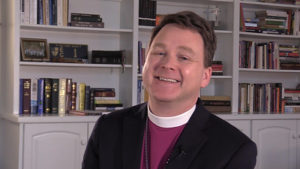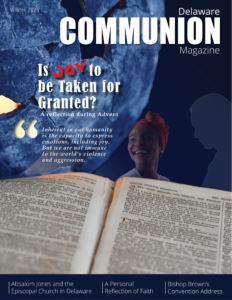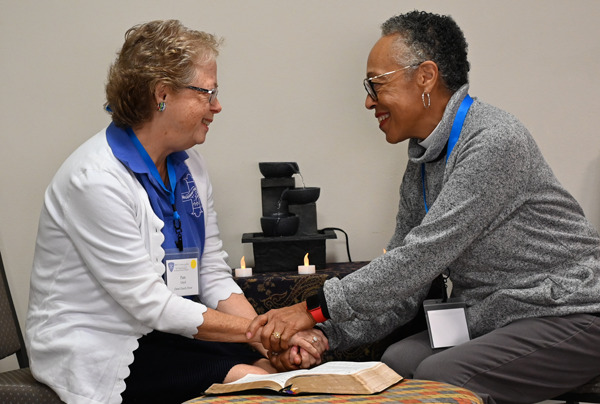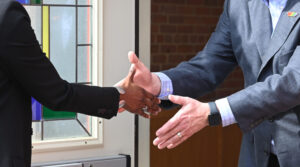Awakening to
Racial Justice
Mission
The mission of the Racial Justice and Reconciliation Commission is to be the catalyst that ensures the Episcopal Church in Delaware achieves diversity, equity, and inclusion by advancing racial justice, healing, and reconciliation.
Vision
The Episcopal Church in Delaware will be known for its commitment to racial justice as an essential component of becoming Beloved Community.
Racial justice videos:
Articles written exclusively for the Episcopal Church in Delaware:
Information and Resources
- Statement on the verdict of the Derek Chauvin trial
- Becoming Beloved Community in Delaware
- Becoming Beloved Community — the Episcopal Church’s long-term commitment to racial healing, reconciliation, and justice
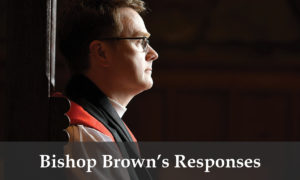
- Profound Unrest
- Video statement from Bishop Brown
- Injustice
- Outrage
- Inhumanity
- Time of Pandemic
- Do Black Lives Matter
- Excerpt from sermon on June 14, 2020
- Stop the Injustice
- Pentecost sermon from Live-stream video
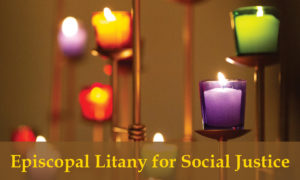
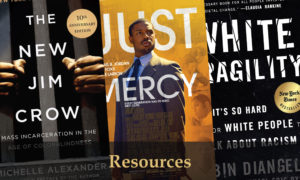
- Website includes statement of solidarity, mission, videos, and a virtual resource center
- Resources for Anti-Racism, Equality, Justice, and Cultural Competence
Black Lives Matter: A Movement, Not a Moment
- An article by Neva Rae Fox talking about the intensity and dedication to Black Lives Matter and how it is clearly crucial to many episcopalians, clergy and lay, Black and white, young and old.
- A book designed to work well as a rapid read, a book group book, or support reading for courses exploring racial and cultural issues.
- Documentary film by Ava DuVerny, examining the U.S. prison system, racial inequality and mass incarceration.
- The Absalom Jones Center for Racial Healing, founded by Dr. Catherine Meeks, provides programs and resources to promote racial reconciliation.
- A comprehensive vision and growing set of resources for Episcopalians working toward racial healing, reconciliation and justice.
- View complete document here.
- Resources for Talking about Race, Racism and Racialized Violence with Kids
- Police violence is a leading cause of death for young men in the United States. Over the life course, about 1 in every 1,000 black men can expect to be killed by police.
- EJI works to end mass incarceration, excessive punishment, and racial inequality. Includes the Legacy Museum and a national memorial for victims of lynching and racial terror.
How Can I Live Peacefully with Justice?
- Explores the way Christian individuals and communities can cultivate peace both locally and on a global scale.
- Book: Ibram X. Kendi
- This is free on streaming sites for the month of June 2020.
- Book: edited by Catherine Meeks
- From the Office of Government Relations.
- “In Passionate for Justice, we find a compass that points us to the future, where we can each give voice and action to justice, equity, and life-giving community. Ida Wells would have had it no other way.” —From the Foreword by Stacey Abrams, 2018 Democratic Nominee for Governor of Georgia
- Godly Play Digital — free download
Preaching Black Lives (Matter)
- Preaching Black Lives (Matter) is an anthology that asks, “What does it mean to be church where Black lives matter?”
Racial Justice & Reconciliation
- From the Episcopal News Service.
- Members of the Presiding Bishop’s staff have curated this list of resources for racial justice and reconciliation.
- “Sacred Ground” is a Film-Based Dialogue Series on Race & Faith created by Episcopal Church staff led by film director Katrina Brown. This set of videos and workbooks can be used to facilitate conversations on racism and reconciliation.
- A personal journey of a priest’s understanding of his Whiteness widens into an invitation to wrestle with larger cultural issues of race and belonging
Stand Your Ground: Black Bodies and the Justice of God
- Book: Kelly Brown Douglas
- Peggy McIntosh at TEDxTimberlaneSchools
- Vernā Myers at TEDxBeaconStreet
- Alice Goffman at TED2015
- Megan Ming Francis at TEDxRainier
- Kimberlé Crenshaw at TEDWomen
- Video: Gayle Fisher-Stewart
- Article: Gayle Fisher-Stewart
- In 2015 the city of Baltimore was shaken by riots in the wake of peaceful protests over the death of Freddie Gray, observers have had cause to reflect on the relationship between nonviolent and violent demonstration.
- Book: Robin DiAngelo
- Delaware Racial Justice Collaborative — learn about this collaborative and view a video from United Way of Delaware and YWCA on the 21 Day Racial Equity and Social Justice Challenge.
- Walk for Justice and Peace — Episcopal Church Of Sts. Andrew and Matthew
- Letter to the people of Delmarva from Ecumenical leaders, condemning unjust killings and abuse of unarmed black and brown people across this nation.
- Wilmington Mayor Mike Purzycki: America must atone in this moment of reckoning (Opinion)
- Episcopal Church Releases Racial Justice Audit of LeadersThe report offers insights into race and power in the church. After two years and more than 1,300 surveys, the ground-breaking Racial Justice Audit of Episcopal Leadership is now available to the wider church and public. The audit identifies nine “patterns” of systemic racism – ranging from the historical context of church leadership to current power dynamics — that will also be highlighted in three public webinars in May and June. More information in English and Spanish here
- Becoming Beloved Community – complete document
- Becoming Beloved Community grants available for local and regional efforts Applications due April 12, 2021 The Presiding Officers’ Advisory Group on Beloved Community Implementation is pleased to announce the availability of grants to catalyze the church’s work of racial healing, reconciliation and justice. Allocated by the 79th General Convention of The Episcopal Church, the intent for this funding is to build capacity and increase Episcopal engagement in four primary fields: telling the truth about our churches and race, proclaiming the dream of Beloved Community, practicing Jesus’ way of healing and reconciliation, and repairing the breach in institutions and society. Read more (In English and Spanish): http://iam.ec/pa2021BBCGrants
- Sacred Ground: A Film-Based Dialogue Series on Race & Faith
- Read Presiding Bishop Curry’s Word to the Church: When the Cameras are Gone, We Will Still Be Here
- Responding to Racist Violence as the People of God
- Episcopal Peace Fellowship
- Supports Episcopalians who pursue social justice and seek to dismantle the barriers that separate us from living as one human family.
- Speaking of Freedom — A Letter to the Church from Kelly Brown Douglas, Stephanie Spellers, and Winnie Varghese. Female church leaders of color urge more anti-racism action in open letter
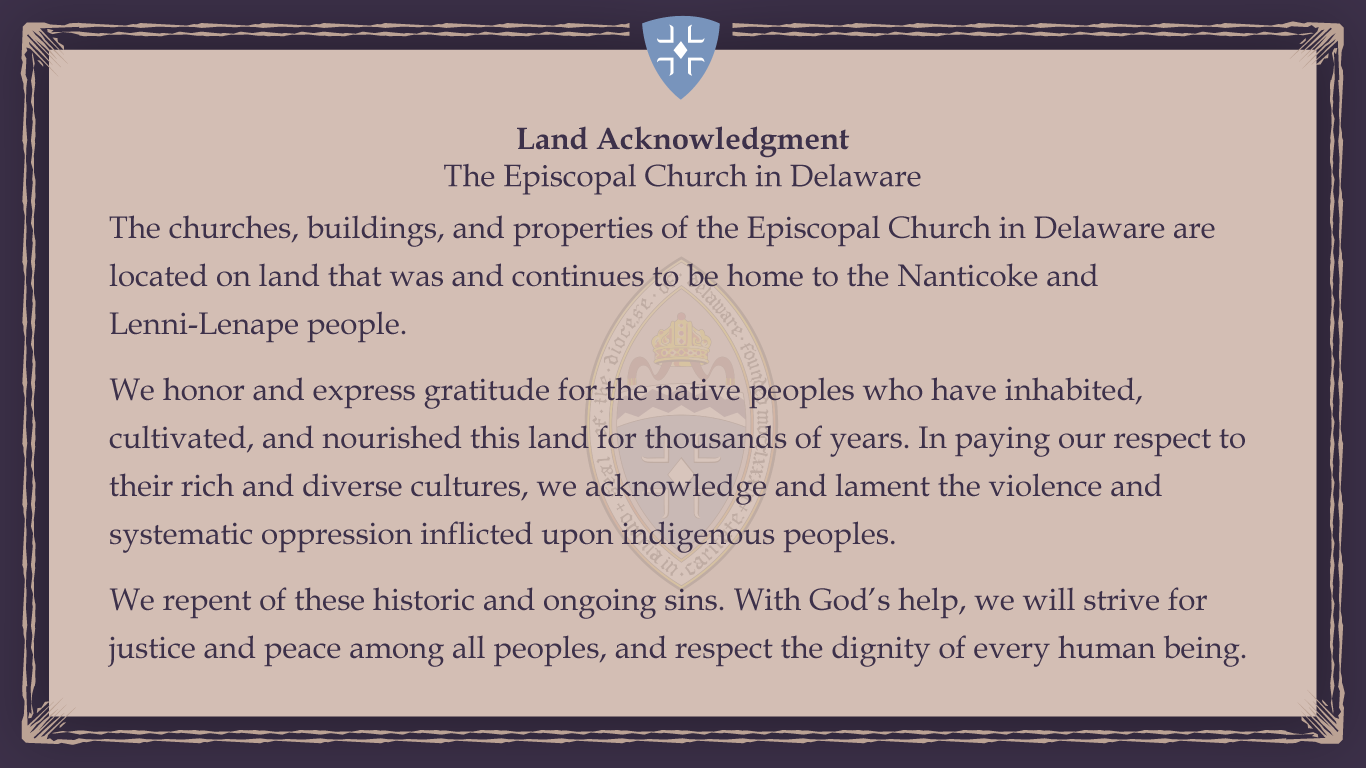
Seminary Built on Slavery and Jim Crow Labor has Begun Paying Reparations
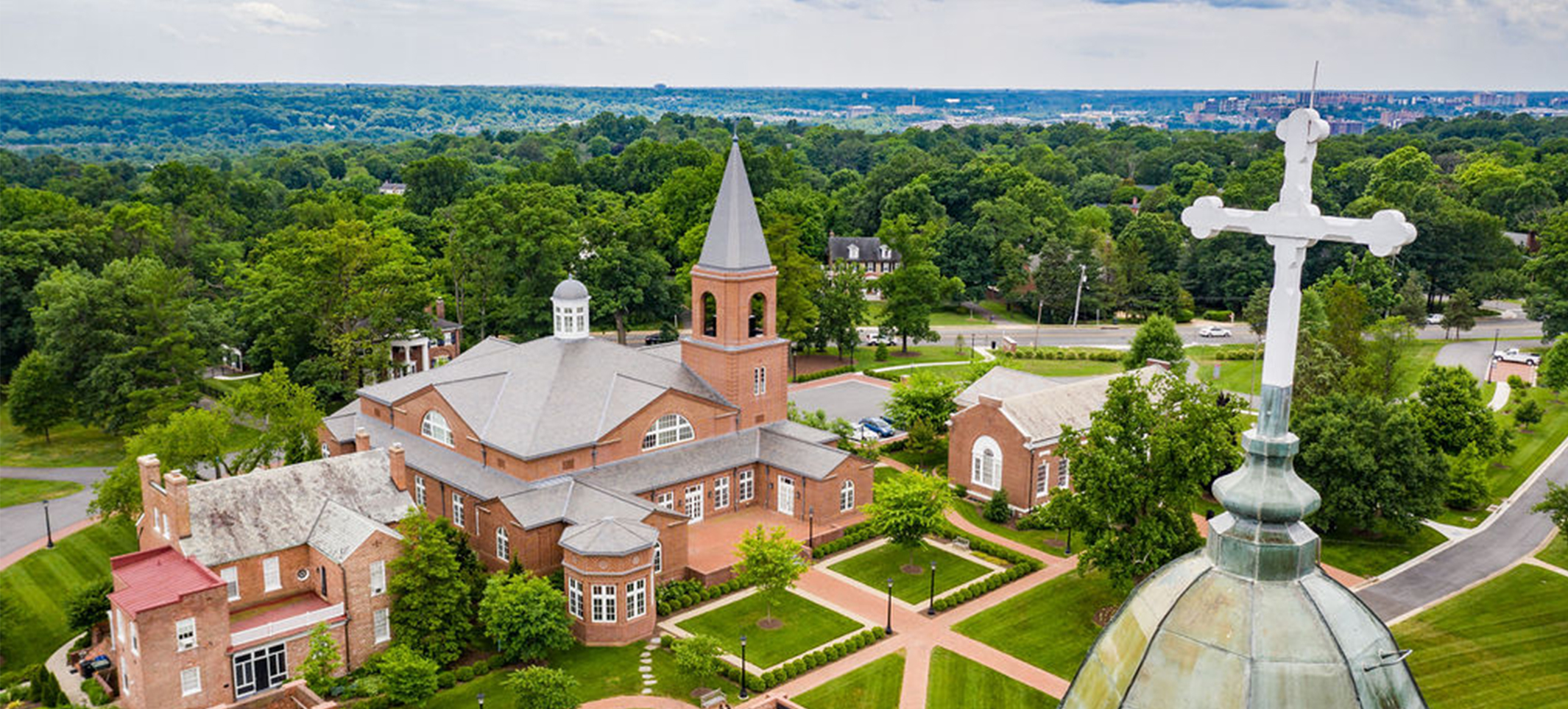
One night in 1858, Carter Dowling, an enslaved Black man forced to work without pay at the Virginia Theological Seminary in Northern Virginia, made the brave decision to escape.
He made it to Philadelphia, where he met the famed abolitionist William Still. He then continued north to Canada and, after the Civil War, returned to Washington, D.C., where he was able to open a bank account for his children. He eventually went on to work as a labor organizer in Buffalo.
To this day, Mr. Dowling’s family line continues. And, most likely for one of the first times in American history, his descendants could receive cash payments for his forced labor.
Read entire article here.

